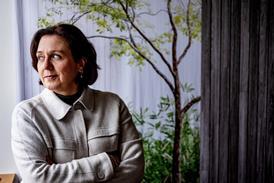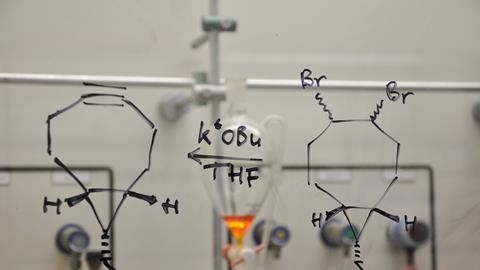Synaffix, located at Pivot Park in Oss since 2013, enables more effective and safe cancer therapy using its GlycoConnect technology. And there is more to come.
Antibody-drug conjugates (ADCs) are increasingly successful in cancer therapy. They specifically target particular cancer cell types. ‘There are currently about 125 of these molecules in clinical trials, and twelve have been approved for the market in the past 10 years’, says Floris van Delft, Chief Scientific Officer and founder of Synaffix. ‘This class of drugs has a great future.’
That sounds promising, but the technologies available to synthesize them are far from ideal. The resulting ADCs lack effectiveness and specificity. The new GlycoConnect technology developed at Synaffix offers a solution to both problems, according to Van Delft. ‘We can modify an antibody with 100% precision by replacing glycan with a therapeutic load. For cancer therapy this load is a cytotoxin. Together with other techniques that we developed this results in an ADC that works better in animals models, which may enable lower doses in the clinic.’
The basis of this technology lies in the discovery of the molecule bicyclononyne (BCN) by Van Delft and colleague Sander van Berkel (now Vice President R&D Operations at Synaffix) at the Radboud Universiteit Nijmegen. The two had been researching metal-free click chemistry since the beginning of the century. ‘BCN appeared to be super reactive, easy to synthesize and quickly dissolvable in aqueous solutions’, Van Delft tells. ‘These unique properties make it very suitable for ‘clicking’ molecules together. Our first idea for Synaffix was to sell BCN-based products online. It was only when our current CEO, Peter van de Sande, joined our team, that we changed our business model. We then combined our knowhow of metal-free chemistry with that of protein modification, which lead us to ADCs.’
‘In the future, we aim to be a one-stop shop’
Immuno- and gene therapy
The team chose Pivot Park as their location. ‘Here we got our money’s worth’, says Van Delft. ‘We could buy lab space and rent equipment, thereby saving investments. Also we wanted to build a dedicated lab were we could works safely with ultra-toxic compounds. This park made this possible.’
Now Synaffix sells licenses of its technologies to pharmaceutical companies. And with success. Four ADCs are in a clinical phase 1 study, 18 others are in preclinical development. ‘These companies currently produce their ADCs themselves, but in the future we hope to do this for them, as a one-stop shop.’
Synaffix has additional future plans. ‘We now mostly use apoptosis-inducing toxins in our ADCs’, tells Van Delft. ‘But we aim to broaden our scope to immunotherapy, stimulating immune cells to attack tumour cells. Another option is gene therapy, because gene-regulating oligonucleotides can also be coupled to the antibody. This could be promising in the treatment of neuromuscular diseases. With our technologies the possibilities are endless.’
International recognition
Synaffix is also making an impression abroad. In 2022, the company was named ‘European Biotech Company of the Year’ at the LSX European Lifestars Awards Ceremony in London, and Business Development Team of the Year at the annual Scrip Awards, also in London. In addition, GlycoConnect received the award for ‘Best ADC technology platform’ for the second time, at the World ADC Conference 2022.
















Nog geen opmerkingen